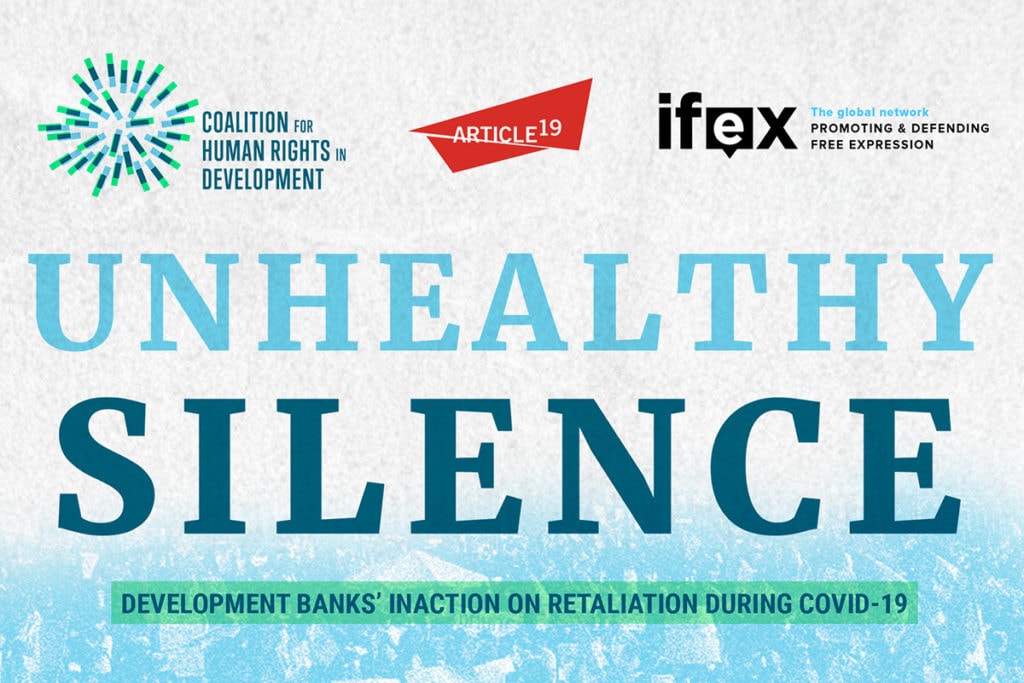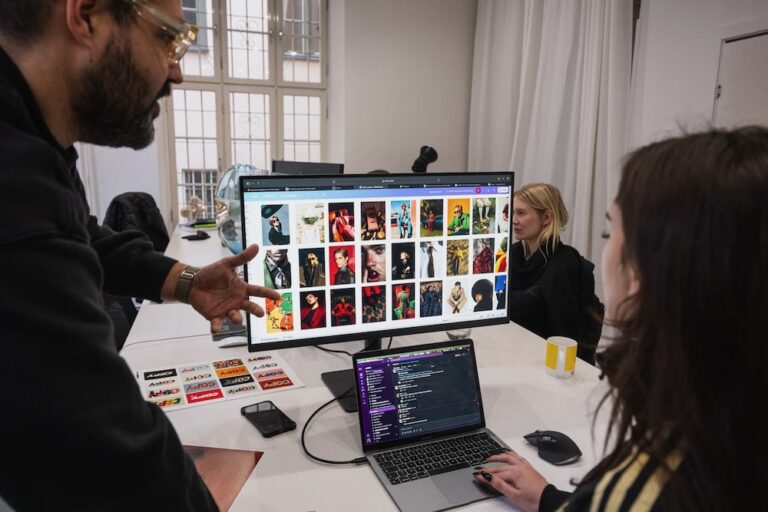Global pandemic response falters as clients of worlds’ biggest banks silence medical workers, journalists and activists with impunity.
For the past eight months, Anastasia Mejía Tiriquiz has not been allowed to leave her house. She cannot walk around her town, she cannot shop in the local market, and she cannot work at the radio station that she directs.
Tiriquiz is an indigenous K’iche Mayan journalist and human rights defender from Guatemala. In October 2020, she was placed under house arrest after reporting on a protest against the way resources intended to address the pandemic were being managed.
In 2020, the World Bank and the Inter-American Development Bank granted the Guatemalan government three loans, for a total of US$ 620 million, to address the health, social and economic impacts of the pandemic. Neither of the banks, however, took any action when their client unfairly criminalized Tiriquiz for reporting on COVID-19.
Development banks have poured billions of dollars into financing governments’ responses to the pandemic. They supported purchase of medical equipment, vaccination roll-outs, contact-tracing technologies and financial relief for sectors impacted by the lockdown. Many of the projects also included awareness-raising about COVID-19, recognizing the importance of accurate and widespread public information. However, when journalists were jailed or attacked for their reporting, the financiers remained silent.
According to “Unhealthy Silence”, a new report published on July 27 by the Coalition for Human Rights in Development, ARTICLE 19 and IFEX, public development banks have earmarked at least US$ 150.54 billion to support the COVID-19 response, but they have not taken any meaningful action to prevent and address attacks against journalists, health workers, human rights defenders and others.
Since the pandemic started at least 335 people have been attacked or criminalized after speaking out or reporting on issues related to COVID-19. The report documents cases of retaliation (such as threats, physical attacks, arrests and even killings) in 35 countries that received or are receiving financial support from development banks. The actual number is likely much higher, since several governments have used COVID-19 as a pretext to clamp down on freedom of expression and restrict the right to civic participation. They have systematically tried to censor dissenting voices through the declaration of emergency laws, including laws on fake news and disinformation.
These voices have refused to be silenced. Journalists have continued to provide accurate and life-saving information, demystifying the lies often spread by the authorities. Doctors and nurses have tirelessly demanded equal access to healthcare for the most vulnerable and protective equipment for frontline workers. Activists have spoken out against corruption and lack of transparency. Ordinary citizens have raised their voices to hold their governments accountable.
Press freedom and civil society participation are crucial to ensure an appropriate and effective response to the pandemic. As the former United Nations Special Rapporteur on freedom of expression David Kaye wrote in April 2020, “the freedom to share information and ideas empowers individuals and communities”, while “censorship can kill, by design or by negligence”.
Development banks have a responsibility to ensure people can safely express their opinions about the projects they support, and freely access the information they need. However, as “Unhealthy Silence” highlights, when civil society organizations raised concerns about cases of retaliation, the banks failed to recognize their responsibility to prevent and address reprisals. The banks only reaffirmed their commitment to stakeholder engagement, participation and transparency, but having words on paper is of little use if there is no real possibility for people to freely and safely speak out.
Development banks are extremely powerful actors. They have important resources which – if used properly – can enable people to access medical care, food and other essential services they need to live and thrive. Facilitating peoples’ right to be informed, and express themselves is a basic need to ensure that development banks’ funds are used for their intended purposes.
These banks can – and should – do more to turn their commitments into real actions. They should require their client governments to stop attacking or censoring dissenting voices. They should publicly condemn reprisals and commit to the protection of human rights. They should speak out every time a person is jailed for expressing their opinion. They should not allow reprisals to happen in a climate of total impunity. Otherwise, this silence amounts to complicity.
Authors:
Lorena Cotza, Communications Lead (Coalition for Human Rights in Development)
Silvia Chocarro, Head of Protection of Journalists & Human Rights Defenders, ARTICLE 19
Matthew Redding, Global Campaigns Strategist, IFEX



